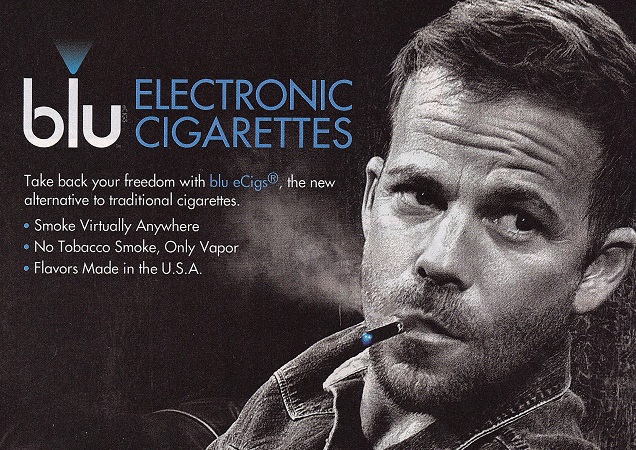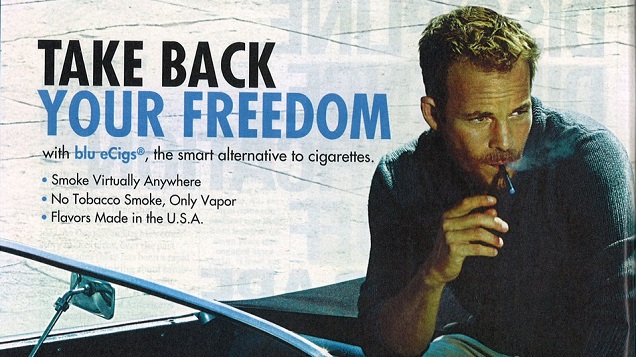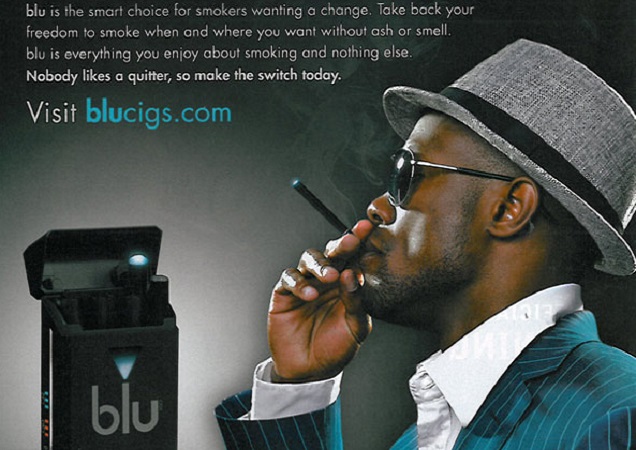
It was only a matter of time until this happened. A class action has been filed against Lorillard at the Orange County Superior Court for Blu eCigs’ “claims” that e-cigarettes are safer and healthier than tobacco cigarettes. Claims is in quotation marks because firstly, it’s not clear that Blu actually does claim they’re a safer alternative to cigarettes, and secondly (and more importantly) they are actually a safer alternative to cigarettes, according to pretty much every single study ever conducted on the safety of e-cigarettes.
Sadly, the lead plaintiff has clearly fallen hook, line and sinker for the Still Blowing Smoke campaign, and is looking for an injunction to stop Lorillard advertising their products as “safe,” wants a refund for all members of the class, and damages for unfair competition and deceptive advertising.
The Complaint: A 50-Page Tome of Anti-Vaping Rhetoric
The content of the complaint pretty much boils down to the same-old anti-vaping rhetoric, like the Still Blowing Smoke campaign lodged itself into the mind of lead plaintiff Larry Diek and made him feel like he’d been misled (you know, probably into quitting or cutting down his smoking). He was right, he had been misled, but not by the people he thought. Then he latched onto Blu’s claims that it’s a “smarter” alternative and that their products only produce vapor, not smoke, and seems to have taken this as equivalent to saying that e-cigarettes are safer than cigarettes.
In response to this, he says that vapor is actually, “a concoction of chemicals toxic to human cells.” Of course, he’s probably not basing this on his analysis of the scientific evidence, which shows that e-cig vapor is much less toxic to lung cells than cigarette smoke (and that most e-liquid isn’t toxic to other types of human cells either), but the California Department of Public Health’s e-cigarette report. As you might expect, this report does not paint a rosy picture of e-cigarettes, and of course, it’s based on gratuitous cherry-picking of the available evidence to support a pre-determined conclusion. So business as usual, really.
In familiar language, Diek adds that, “Mainstream and secondhand e-cigarette aerosol has been found to contain at least ten chemicals known to cause disease, cancer, birth defects, or other reproductive harm.”
His attorney Brian Chase followed along the same lines, taking the inevitable spiral into “think of the children” as he added to Courthouse News that “The youth of today feel safe smoking Blu e-cigarettes. They are unaware of the risks associated with them due to the lack of labeling and lack of public awareness on what these products really contain.”
Is Blu Claiming to be Safer than Smoking?

The core point of the complaint is that Blu – or of course, the big evil tobacco company Lorillard – is representing e-cigarettes as safe. However, most of their advertising pitches vaping as a lifestyle choice, pushing the “freedom to smoke anywhere” angle and the standard battery of “no odor,” “no ash” sort of claims. The closest they appear to come is the “no smoke,” and “smarter way to smoke” statements that the complaint focuses on.
The impression that they’re “safer” likely comes from the fact that it’s the primary reason for switching to e-cigarettes. Blu doesn’t really need to explicitly claim it to be safer than smoking, because people basically know that’s the idea anyway. And it’s not like Lorillard are stupid – they’re undoubtedly well aware that a lot of eyes are watching what they say. Other tobacco companies are opting to slap loads of warnings onto their e-cigs, so it would be a bold move for Lorillard to make any claims of health benefits in comparison to cigarettes.
Perhaps the complaint is referencing some statement I haven’t spotted, but it seems more like Diek has decided – much like anti-tobacco groups would like everyone to – that presenting e-cigarettes at all positively (I think the technical term is “advertising”) is tantamount to saying they’re “just water vapor” and “totally safe.” You can read into the imagery whatever you like, but it doesn’t mean that it’s really there.

The requested injunction is being made under the Consumer Legal Remedies Act, which states that “Representing that goods or services have sponsorship, approval, characteristics, ingredients, uses, benefits, or quantities which they do not have” is unlawful. Is Blu really “representing” e-cigs as safer than cigarettes by saying its “smarter,” or having healthy-looking people on their ads, maybe? Or are they, maybe, just a scapegoat in this ideological war, handily one owned by a tobacco company?
Even if They Did Claim E-Cigs Are Safer, They’d be Right
This is obviously all undermined by the fact that it’s quite obviously true that e-cigarettes are a safer alternative to smoking. Being safer than smoking isn’t exactly difficult, and since e-cigarettes are predominantly composed of ingredients we encounter every day anyway, it would be quite a leap to propose that vaping would be as dangerous as smoking.
The “chemicals” he references so menacingly are actually in such tiny quantities that studies sometimes fail to detect them at all, and even when they do they’re in anything from tens of times to over a thousand times lower quantities than in cigarettes. Admittedly, we don’t have long-term evidence, and they’re very unlikely to be totally safe (not much really is), but safer than cigarettes is pretty much guaranteed.
Is This the First of Many Lawsuits Against E-Cig Companies?
This case hopefully won’t get anywhere. The immediate problem is whether they’ve really been represented as safer, which is definitely debatable, before you get into the whole issue of whether anybody in an official capacity could be convinced they actually are safer.
Swedish Match recently got a frosty reception when trying to get a reduced risk label approved for their snus, which is undeniably safer than smoking, because apparently when it comes to nicotine, even long-term safety data and a whole country with shockingly low rates of smoking-related diseases isn’t enough. E-cigarettes hardly stand a chance.
So if it can be shown that Blu really was “represented” as safer by Lorillard, then fighting for the right to represent it that way is unlikely to go down well. Depending on the outcome of this case, it really could just be the first of many class actions against e-cigarette companies. Because how dare they offer a reduced harm alternative to smoking? Where do they get off making out that we should base our views of risk on scientific evidence rather than blind fear? What gives them the right to inform smokers of a way to enjoy nicotine that’s considerably less likely to kill them?

